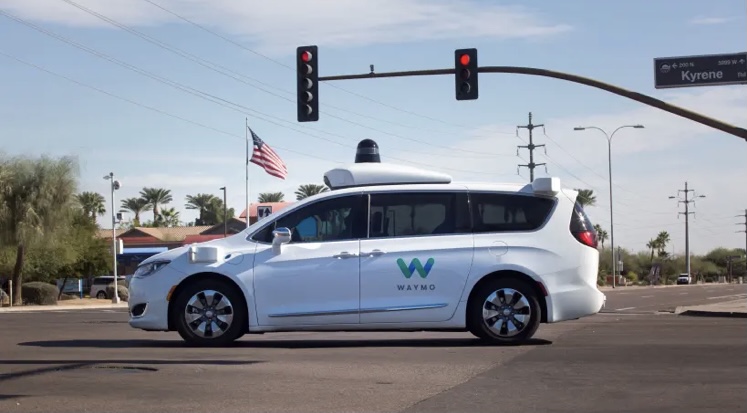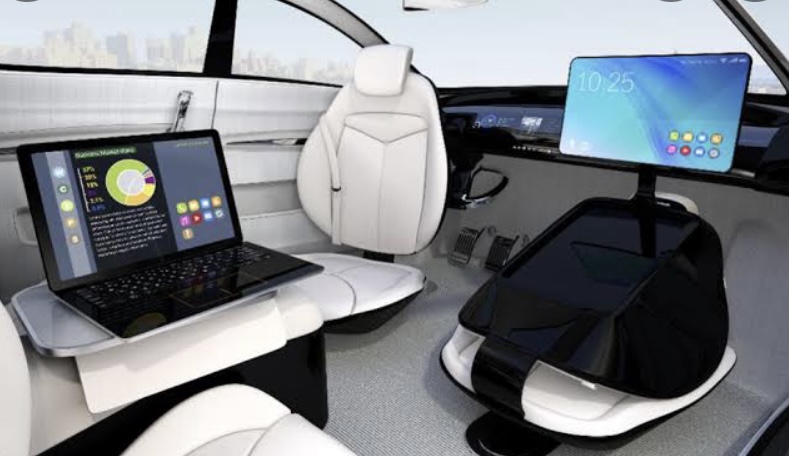Contents
- 1 How did this self driving project start?
- 2 Will self driving cars ever happen?
- 3 Are they a good idea?
- 4 Are driverless cars safe?
- 5 How many deaths have self driving cars caused?
- 6 Are autonomous vehicles better than humans?
- 7 What benefits do these cars furnish?
- 8 Do they pose a threat? What about the cons?
- 9 Scope of autonomous vehicles and their affects on the future
For 60 years, experts kept saying the same thing- “artificial intelligence is coming”. We heard about how official advocates companies and users around the world kept talking about how automated vehicles would change transportation as we know it. So we waited… and waited…
Until one day, the innovation of a self driving car has been introduced. Now this self driving car had become popular for its witty ways of sensing its environment and its cleverness for being able to move safely with hardly any human input. But how? How could a four wheeled crate possibly work on its own?
We as human use our eyes to see our surroundings. The same could not be said for a machine on wheels.
Self driving cars use sensor technologies like LiDAR ( Light Detection and Ranging) to perceive the environment. Thanks to the laser wave pulses that the LiDAR radiates, it’s safe to say that LiDAR does operate as the eyes of these self driving vehicles.

“Stuck in traffic”. This is probably the barricade to most of our reasons for being late to work. Traffic can be terrible, frustrating and exhausting, which is probably why Google must’ve come up with the idea of starting a self driving car project in 2009 with a goal of being able to drive autonomously over 10 uninterrupted 100 mile routes. A couple of years later, another autonomous driving technology, Waymo fractioned google.
How did this self driving project start?
Since 2016, Waymo worked its charms by operating its first fully automated vehicle in public roads, without a driver’s hands on the steering wheel.
Though Waymo innovated the invention to be available by 2020, trial programs are still currently intact and a longer derivation is needed in order to develop sophisticated artificial intelligence systems and computer processing capabilities in order to ensure that the technology is affordable and advanced to people.

Will self driving cars ever happen?
Waymo did all the heavy lifting. Robotiaxis are you and running. So how much longer is this going to take?
Though the world is very optimistic about the future that it holds, it will take several years for researchers to make autonomous driving realistic. Those improvements can’t be rushed as it beings with dealing with programming vehicles to follow traffic rules, all the way to programming them to communicate with humans. Along with the “what if’s?” come the “ what next?” series of challenges to turn this milestone into reality. So although the development of fully evolved systems continue in the background, self driving cars are still a long way off.
Are they a good idea?
Although some argue that the safety record for self driving cars isn’t properly proven yet, most say that driverless cars may be complex when in cities, as they don’t exactly encourage cycling or walking. Considering the epidemic of traffic deaths that have occurred, it’s fair to say that there are plenty of concerns that make the cities think twice before welcoming these cars to the streets.
Are driverless cars safe?
According to a study made by the NHTSA ( National Highway Transportation Safety Administration), 94% of serious crashes are mostly due to human error. So to answer this question, self driving might actually be significant in reducing the number of accidents as a driver input does not necessarily need to exist. The 360° view that these cars provide come in handy to minimise hazards. In severe cases of braking and steering, ADAS ( Advanced Driver Safety Systems) come into picture as well.
How many deaths have self driving cars caused?
Though 90% of traffic deaths are on us for bad/ poor driving, according to the 2021 statistics there have been a total of 18 accidents and 29 disengagements by Waymo.
There have been a total of five deaths reported by Uber, which occurred in the presence of autopilot, but that again is debatable on the responsibility of the driver, so it’s plausible to say that there have been zero deaths reported so far till date.
Self driving cars may be autonomous, but nothing’s ever really perfect right?
Are autonomous vehicles better than humans?
To answer this, unlike us, self driving cars don’t get distracted when a notification flashes on the phone.
These vehicles provide the promise of being routed more efficiently as well as being available right on demand. However, it’s we who are responsible for driving our own vehicles, so rest assured there’s a complete reliability in these cars, at the end of the day, it’s always better to have our own hands behind the wheel.
What benefits do these cars furnish?
- Road safety:
- 94% of the crashes on the highway are due to poor driving, but thanks to automation, dangerous driving behaviours like speeding and snoozing behind the wheel can be potentially avoided.
- Self reliance and welfare:
- The disabled such as the blind or paralysed are being given welfare as they are now capable of travelling to places on their own because of the more personal freedom this automation offers.
- Saving up:
- Self driving cars are favourable in terms of having medical insurance, saving time and the costs of vehicle repair.
- Productivity:
- Self sufficiency happens to be in the upper hand, which allows us to conveniently pursue better productivity activities and entertainment, whether it’s going shopping, arranging a meeting or even as simple as responding back to an email.
- Comfort:
- reduced congestion means more comfort. HAV’s (Highly Automated Vehicles) are built in such a way to maintain distance between other vehicles to ensure not just safety, but personal space too.
- Environmental gains:
- These cars play a role in the influence of electric vehicles (like Tesla) as both of these save up fuel and have a lesser impact on provoking greenhouse gases.
Do they pose a threat? What about the cons?
- It’s a little too early to say how exactly self driving vehicles will affect the rates, but there is a possibility that these cars can get flooded, damaged, dirty, or even worse- stolen.
- Although these automation cars came up with the brilliant idea of featuring LIDAR, these LIDAR sensors may not always be adaptable to climate changes. For example, though they give off an enhanced 3D vision in the night, it’s tough to say the same when it’s snowing.
- Moreover, since these vehicles are autonomous, those who love to drive are prone to losing their driving skills, as the experience of personal driving will never be the same, as long as it’s accompanied by autopilot.
Scope of autonomous vehicles and their affects on the future
The automotive world stands for its consistency, adaptability and extremely resilient nature in the development towards self driving cars.
Due to the variety of benefits it offers, it’s quite reasonable as to why several companies invest in automobile vehicles. Thanks to the annotation of LIDAR, it has fabricated a digital representation on how artificial intelligence views the world.
Nearly 7 billion dollars go straight to the development of self driver cars. It’s hard to ignore the fact that one of the most recent cases showed a 9% reduction in the consumption of energy and CHG emissions.
But it isn’t just about the benefits that driverless cars offer. It’s about how they are built to view, inspire and change the world, one step at a time.
Next Read: Best Tesla Model 3 Accessories

An ambitious warrior to overcome the adversities of life and find the path to my victory. In search of my innerself in the works of time and space.
